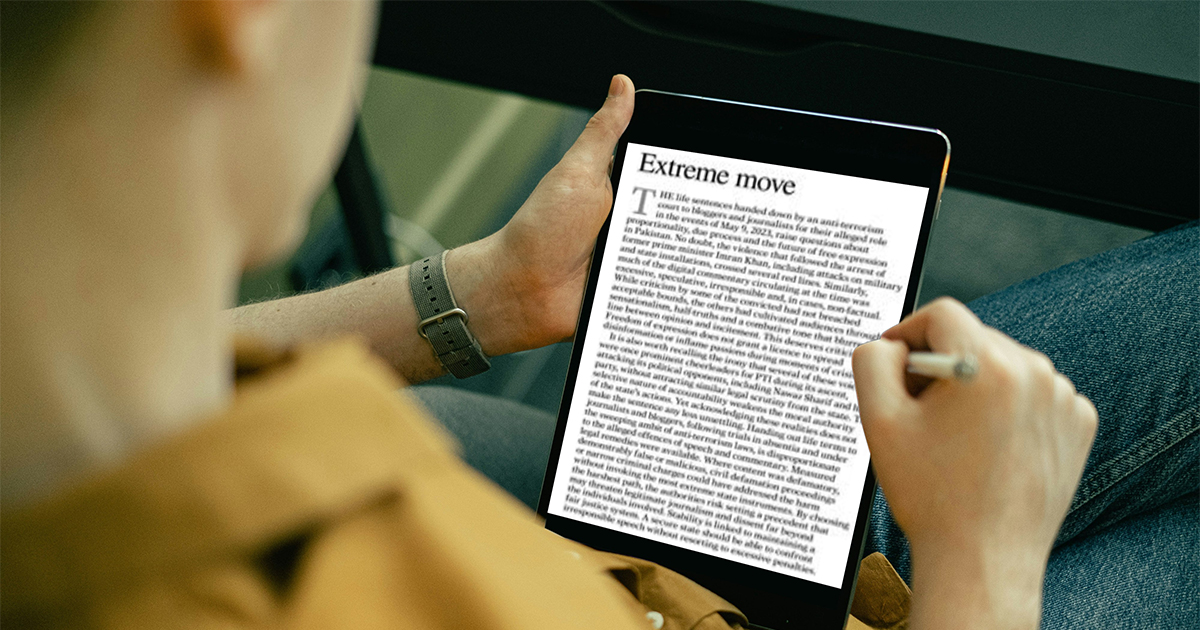Pak media good: US journalist
JournalismPakistan.com | Published: 4 August 2012 | Qazi Asif
Join our WhatsApp channel
A US journalist highlights the strengths of Pakistani media while acknowledging concerns about some media elements supporting extremism. Karen DeYoung, a senior correspondent, shares insights on the perception and challenges faced by the media in both countries.Summary
KARACHI: The United States has plenty of respect for Pakistan’s media and journalists. While on an extended work trip to the US, I had the opportunity to meet many journalists there and the majority of them were full of praise for their Pakistani counterparts.
There were some reservations too about the role of a section of Pakistan’s media perceived as supporting extremism and militant elements.
To get a better perspective of how the media and journalists in the US view their Pakistani counterparts and their role in disseminating information, I sought the opinion of Karen DeYoung, Associate Editor and Senior National Security Correspondent for The Washington Post.
DeYoung has been journalist with The Washington Post since 1975 and has held numerous leadership positions at the paper. She also has experience of reporting from Pakistan and Afghanistan. Lauding the efforts of the Pakistani media, she said: “I love the Pakistani media.
American journalists say Pakistani journalists are good sources for the US media and are hard workers.” She did have one complaint though. “American journalists are not allowed to go to Balochistan. The Pakistani government also does not allow us access to Peshawar and Lahore,” she said.
During our discussion DeYoung noted even though the US government had supported military governments in Pakistan in the past as dictated by prevailing government policy, American media had remained divided on the issue.
News and editorial teams also had totally opposing viewpoints on the issue as most newsrooms were of the opinion that army dictators should not be supported, but editorial sections always managed to find support for them. “We did not agree to support Gen Zia and showed lack of foresight in supporting other military dictators in Pakistan as well.
This was also the case when our editorial section decided it prudent to support Gen Zia and Gen Pervez Musharraf.” DeYoung said there also existed an ongoing debate about the legal justification of drone strikes in Pakistan. “There has been a long disagreement over drone strikes, which is difficult to explain to the public. The Pentagon says it is not involved.
The CIA takes a public position that the program doesn’t exist. The Pakistani government says that the US seeks permission for drone attacks from them. Pakistan says the agreement between the countries has not been upheld by the US but the US claims otherwise.
There has to be responsible clarity on the issue.” (The writer is a journalist and electronic media trainer associated with Waqt TV)
KEY POINTS:
- US journalists respect Pakistani counterparts for their hard work.
- Concerns exist over some Pakistani media supporting extremism.
- Karen DeYoung emphasizes access restrictions in Balochistan, Peshawar, and Lahore.
- Debate continues regarding the justification of US drone strikes in Pakistan.
- American media has differing viewpoints on support for military dictators in Pakistan.

























